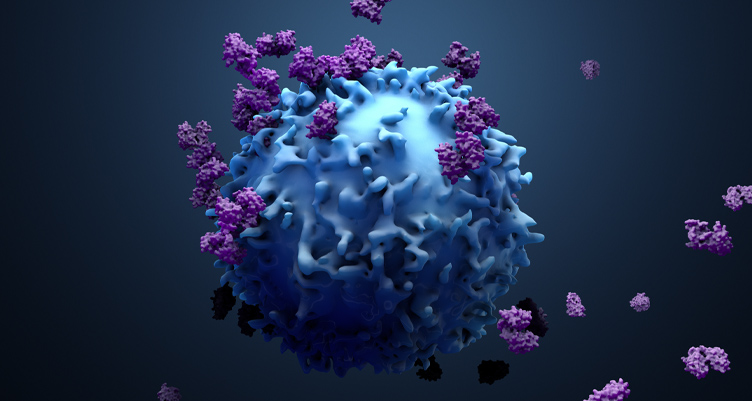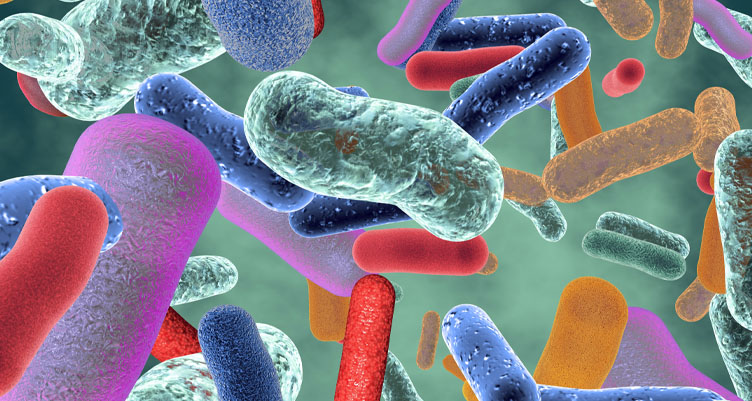Does Your Gut Control Your Immune System? The Science Behind the Connection

- Recent science suggests your gut microbiome plays a big role in your body’s immune system.
- Your microbiome immune system is a diverse team of trillions of microorganisms. This defense system recognizes the good guys from the bad and helps keep your body balanced.
- Read on for more about the research on gut microorganisms, answers about gut health and recipes to help keep your gut microbiome thriving.
Want to support your immune system? Early research suggests it all starts with your gut. Scientists are still cracking the code to understand the science behind the connection. They’re finding your gut microbiome is calling a lot of the shots when it comes to your body’s immune response.
The most revealing data shows that there’s an immune system of gut microbes working together, communicating with your body to sound the alarm when defenses are needed. The clear takeaway? A healthy gut microbiome is key to your overall wellness.
How your immune system works

Your immune system is made up of four teams:
- The organs that produce armies of white blood cells
- Lymphatic systems that circulate those troops
- The antigens and antibodies your system makes after taking on viruses and other threats
- Your gut microbiome, which scientists are finding plays a critical role in immunity
Your gut microbiome is the community of bacteria, fungi and other microorganisms living within your digestive tract. They not only break down food into nourishment, but also send warning signals to our body’s immune system when they sense danger.[1]
“A huge proportion of your immune system is actually in your GI tract,” said Dan Peterson, assistant professor of pathology at Johns Hopkins University School of Medicine. Peterson is studying how the immune system collaborates with the gut microbiome to defend your body.
For example, sentinel microorganisms that live in the walls of your digestive tract encounter millions of other microorganisms, but when they sense the presence of a particular type of bacteria, they excrete compounds into the gut that trigger your body’s immune response to send in the cavalry, the white blood cells that will destroy that particular bacteria. The science behind the interaction is the mystery Peterson is trying to solve.[2]
The immune system in your gut

At its best, your microbiome is like a well-functioning city. Everyone works together to not only break down food for nourishment, but also to defend the city from marauding invaders like microorganisms that are multiplying out of control and threatening to cause disease.
The population and diversity of that city is impressive. If you gathered up the trillions of microorganisms in your gut microbiome, made up of over 2,000 different animal species and 12 different plant phyla, and put it on a scale, it could weigh as much as five pounds.[3]
Scientists haven’t yet developed a recipe for an optimal gut microbiome. In fact, the “best” mixture of good and bad bacteria is likely unique to each of us. However, recent research suggests there’s a connection between the composition of your gut bacteria and your risk of disease, inflammatory response and metabolism:
- Babies that grow up with dogs have been shown to have more varieties of microbes in their gut microbiome,[4] and studies show that kids with a more diverse gut microbiome have fewer allergies and less asthma.[5]
- Scientific laboratory models show that even a change in a single bacterial species within the gut can affect the inflammatory responses of autoimmune disorders.
- One rodent study found that switching from a low-fat, plant-based diet to a high-fat, high-sugar diet altered the microbiome balance in one day, leading to obesity in just two weeks.[6]
Why your immune system loves balance

The body’s immune system is designed to pounce whenever it senses a threat, boosting production of white blood cells and releasing inflammatory proteins. When your immune system is healthy, your body and gut microbiome immune system maintain homeostasis.
This is a state of balance where the good microorganisms in your body are allowed to do their jobs, and any not-so-good microorganisms are flagged by the gut microbiome and kicked out before they can gain ground. All other processes in the body can operate optimally and nothing gets in the way. Homeostasis is a good thing.
When the immune system begins losing its battle and invading microorganisms start to take over, the microbiome gets out of balance. The same imbalance can happen when your body’s immune system becomes too vigilant. The inflammatory immune response can get so out of control that it begins to attack your body’s own cells. This situation is the start of an autoimmune disorder.[7]
Resources for gut health and immunity

If you have any health concerns, talk to your doctor. Changes to your diet and lifestyle can also nurture a healthy gut and support your immune system. Check the resources below to find answers to your gut microbiome and immunity questions:
- How do you recognize if your gut isn’t healthy? Read the signs and find out how to improve your gut health.
- How can you use natural remedies to support immunity? Get the feel-good checklist.
- What’s more important than probiotics? Learn why prebiotics are the key to keeping your gut healthy.
- Hectic sleep schedules and all-nighters can wreck your gut health. Learn why and how to repair your gut after losing sleep.
Recipes to support gut health

- Easy Prebiotic Bulletproof Coffee with Collagen Protein: This recipe is an easy way to work prebiotics and collagen into your daily routine.
- Gut-Friendly Mango and Raspberry Slushie: Get a delicious dose of gut-friendly Bulletproof Unlfavored Gut Health Collagen Protein in this tropical treat.
- Creamy Cauliflower Collagen and Chicken Soup Recipe: Make yourself a bowl of comfort with this next-level version of classic chicken soup.
- Easy Bone Broth Recipe: Bone broth is a nourishing way to get more collagen in your diet. Collagen provides the amino acids your body needs to support your connective tissue.
Sign up for early access to sales, product launches, the latest Bulletproof news and more!



